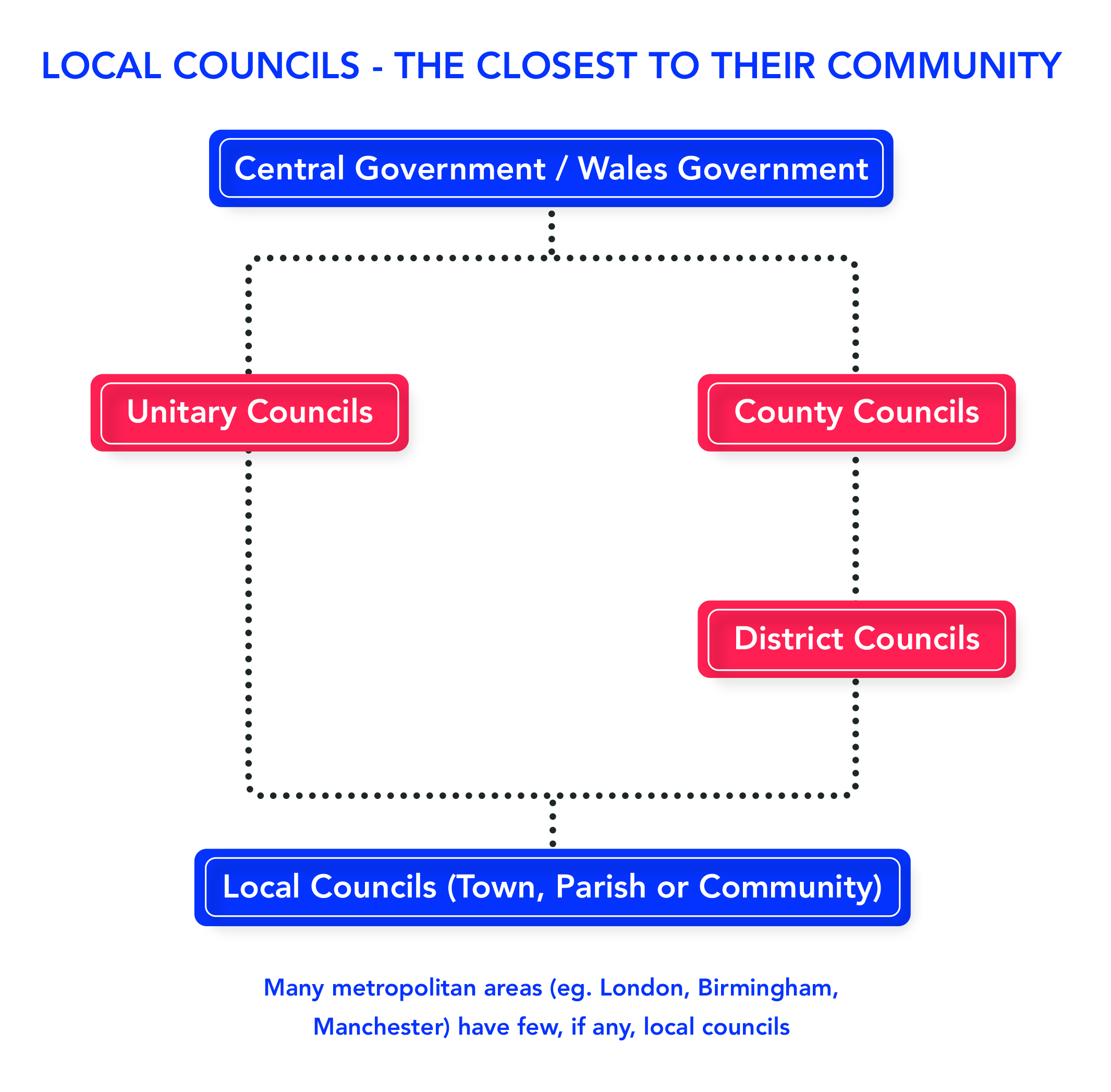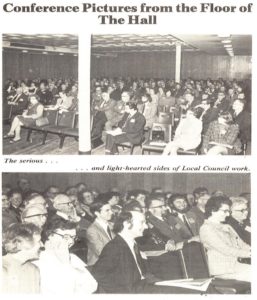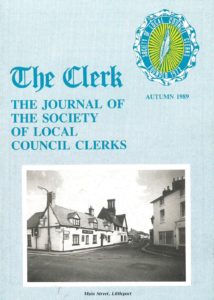About us
Founded in 1972, SLCC has gone from strength to strength, starting with just 50 members and now representing clerks to over 5,000 local councils in England and Wales.
As the professional body for local council clerks and senior council employees, we ensure that our members are equipped with the necessary knowledge, training and skills to thrive within their role and best support their council and community.
Many councils understand the benefit of having a clerk who is trained, fully briefed on current issues within the sector and able to access accurate advice quickly. As such, 97% of our members’ councils pay for their clerks’ annual subscription, as encouraged by the Local Government Act 1972 s 143 (1) (b), ‘a local Authority may pay reasonable subscriptions, whether annually or otherwise, to the funds of any association of officers or members of local authorities which was so formed.’
Whether you seek expert advice, to develop your professional career or simply build relationships with your fellow clerks, we can offer you the support and recognition you deserve.
Our vision
Inspiring Professionals; Empowering Councils and Communities
Chief Executive
Rob has been SLCC’s Chief Executive since 2017 before which he held senior management roles in the cruise and rail industries in Britain and North America spanning both public and private sectors.
As a senior leader, Rob, who holds a Masters Degree in Business Administration, has an impressive track record of leading cultural and organisational change in a wide variety of business contexts.
Under the direction of the Board of Directors and supported by a team of Heads of Service, Rob has successfully guided SLCC through a period of considerable challenge and change to become the open, modern, forward-thinking and, above all, member-led, professional body it is today.

Chair
Adam Keppel-Green FSLCC has been Town Clerk at Knutsford Town Council since 2014, having started as Deputy Town Clerk, and has overseen significant growth at the council as it has taken on assets and developed its role within the local community. Adam is also the Clerk to Gawsworth Parish Council.
Adam is currently completing his final year of the Community Governance degree programme, with a dissertation looking at the effects of unitary authority creation on local councils. In 2021, Adam won Clerk of the Year in the National Association of Local Councils (NALC) Star Council’s Awards.
Adam was elected to the NEC and served on the Presidents Commission which developed the governance changes which led to the creation of the Board of Directors in 2017 on which he has served since its inception. Adam also helped to re-establish the Cheshire Branch in 2014 and currently serves as Training Officer, delivering CiLCA training for clerks and organising an annual branch conference.

President 2023/24
Malcolm Nicholson PSLCC is Town Clerk of Weston-super-Mare Town Council, the third largest local council by population, having been appointed in 2009. He is also Chair of the Somerset Branch of SLCC. He has a Law degree from the University of Warwick and following a brief period with a private firm and further studies qualified as a solicitor in 1983 when he joined Norfolk County Council.
He has over 40 years’ experience in local government, initially working on a variety of legal work for three different principal councils. At North Somerset Council he managed a department including democratic, registration and electoral services as well as legal services and attended and advised full council meetings. He was also Monitoring Officer for 12 years from 1997, advising parish and town councils and standards committees, before joining Weston-super-Mare TC in 2009.
During Malcolm’s 14 years as town clerk the town council has expanded, doubling its turnover and taking on new assets including a new wellbeing park and developing a water park on the sea front. It saved the Weston Museum from closure and following a Lottery funded £1.5 million refurbishment runs it as a vibrant community hub. Other services include an 18 acre cemetery, a 200 seat community theatre, 21 play areas, 5 public toilets and 6 allotment sites, all of which have been invested in and improved.

Malcolm has developed closer working with local voluntary sector bodies, including the YMCA who now provide the town’s youth services, South West Heritage Trust and Citizens Advice. During the 2020 lockdown an 8 staff Community Resilience team was established to work with local volunteers supporting vulnerable people, community work which continues to date.
Under Malcolm’s leadership the council has focussed on equality and diversity, making an Anti-Racism Pledge, supporting PRIDE festivals, doing equality impact assessments on all services and developing only the second fully accessible SEND play area in the county. His council has also made a Climate Pledge committing to achieving net zero emissions by 2030. It has recently acquired the freehold of the grade 2 listed Mercury building in the town centre as a new HQ, meeting chamber, tourist information office and voluntary sector hub and will be moving in during 2024 following extensive refurbishment including rooftop solar generation.
During his year as president, Malcolm as an ex-monitoring officer is keen to promote the Civility and Respect Project. He is supporting two charities, the Alzheimer’s Society which funds both research and practical support for people suffering from dementia; and the SLCC Charity supporting clerks with their professional development and training.
Malcolm lives with his wife Joanne and his activities outside work include a keen interest in history, CADW membership, gardening, Morris dancing and country walks with their dog.
Malcolm’s email address is [email protected]
The president elect is Gina Lopes PSLCC.

The President's Charities
Alzheimer’s Society
The Alzheimer’s Society are working towards a world where dementia no longer devastates lives. They do this by giving help to those living with dementia today, and providing hope for the future.
SLCC Educational Fund
The new SLCC charity dedicated to supporting clerks with their Community Governance qualification. The new charity will provide educational funding and support to clerks who are either new or existing students, to ultimately develop the professionalism of the sector.
Presidential Sponsors
Meet the team
Our team has a wealth of experience and are committed to providing outstanding customer service. Our Head Office is located in Taunton, Somerset with the team positioned across England and Wales.




The local government sector
Local government touches the lives of everybody, every single day. It is responsible for a varied and wide range of local services vital for people, businesses and communities.
The structure of local government varies from area to area, and region to region but many parts of England have 3 tiers of local government.
Click here to read more about the role of a clerk.

Important dates in SLCC history
1972The beginning of SLCC
1973December – 510 members
19751st National Conference

1989A new look

2001National Executive Councils’ Investment
2006 The start of SLCC Enterprises
2015Increase in member services
2016January – Creation of a separate trade union
2016February – Online Bookings
2017SLCC became a limited company
Today
At SLCC, we curate a comprehensive roster detailing past Presidents, Secretaries, Chief Executives, and Chairs. Click here to view our Virtual Honours Board.
Partners
We are driving excellence in the local council sector and represent our members interests by partnering with a number of other local council sector stakeholders, the key ones of which are available by clicking below.




